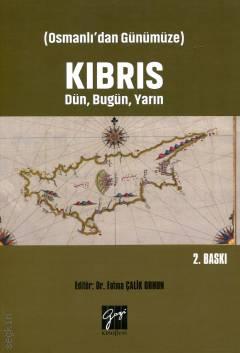>
Sosyal Bilimler Kitapları>
Uluslarararası İlişkiler>
Kıbrıs>
Nationalisms and The International Conjuncture: The Case Of Cyprus 1945 – 1964

Nationalisms and The International Conjuncture: The Case Of Cyprus 1945 – 1964
1. Baskı,
Aralık 2020
Kitabın Detayları
Dili:
İngilizce
Ebat:
13x19
Sayfa Sayısı:
115
Kitabın Fiyatı:
130,00₺
Temin süresi 2-3 gündür.
Kitabın Açıklaması
This book utilized a qualitative research design composed of a comparative historical analysis examining the Greek and Turkish nationalisms in Cyprus, with relevance to the international conjuncture.
The book problematizes the influences of international conditions on the politics of nationalism in Cyprus. Ituates the theoretical approaches accounting for nationalism as a socio-political phenomenon, and indicates that these approaches, despite their successes in illustrating the political and sociological aspects of nationalism, tend to neglect the international conjunc¬ture as another factor shaping politics of nationalism.
A noticea-bleamount of Cypriot scholars concerned on the nationalisms in Cyprus have conceptualized Greek and Turkish nationalisms in Cyprus as a socio-political development, however, they generally had the tendency to focus primarily on the domestic conditions generating the nationalisms and to overlook the roles played by the international developments (for instance Soviet de-Stalinization, the emergence of NAM, ete). The analyzed period of time was the late-Colonial era and the early independence era (1945-1964).
The book concluded that, the developments in the international politics had signifıcant effects in shaping the nationalism politics of the two communities in Cyprus.
Kitabın Konu Başlıkları

Introduction

Defining Nationalizm As a Political and İnternationalConcept

The Historical Developmnent Of Nationalism in Cyprus

Nationalism Politics in Cyprus As a Part Of International Conjuncture

Conclusion
Kitapla İlgili Kategoriler
Hakkımızda
|
Uluslararası Yayınevi Belgesi|
Kaynakça Dosyası|
Kişisel Verilerin Korunması |
Üyelik|
Siparişlerim|
İade Politikası|
İletişim


